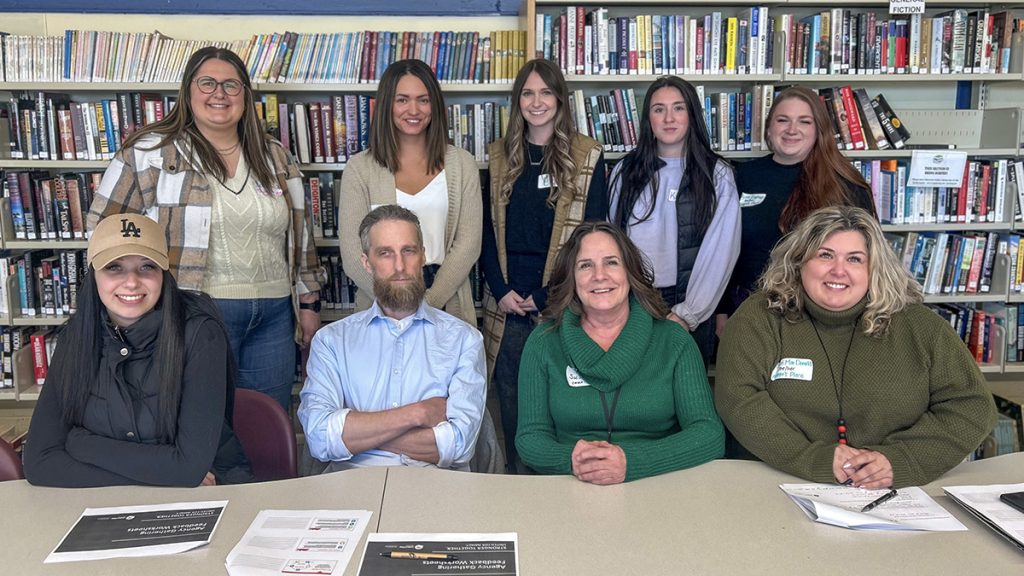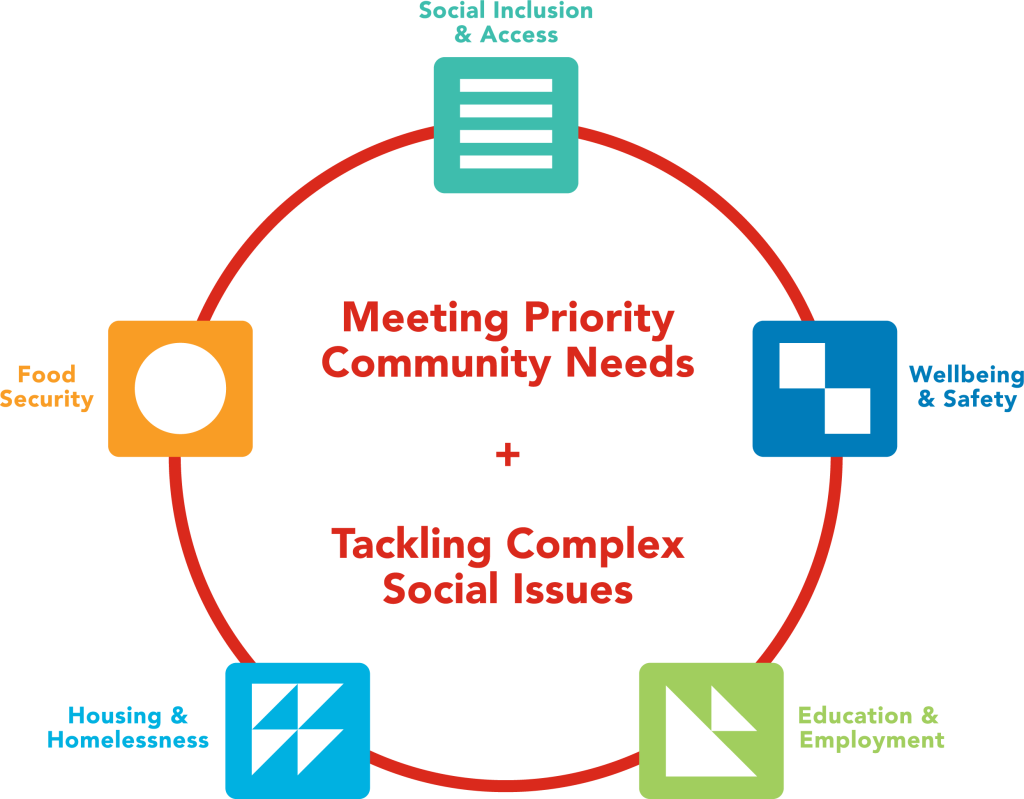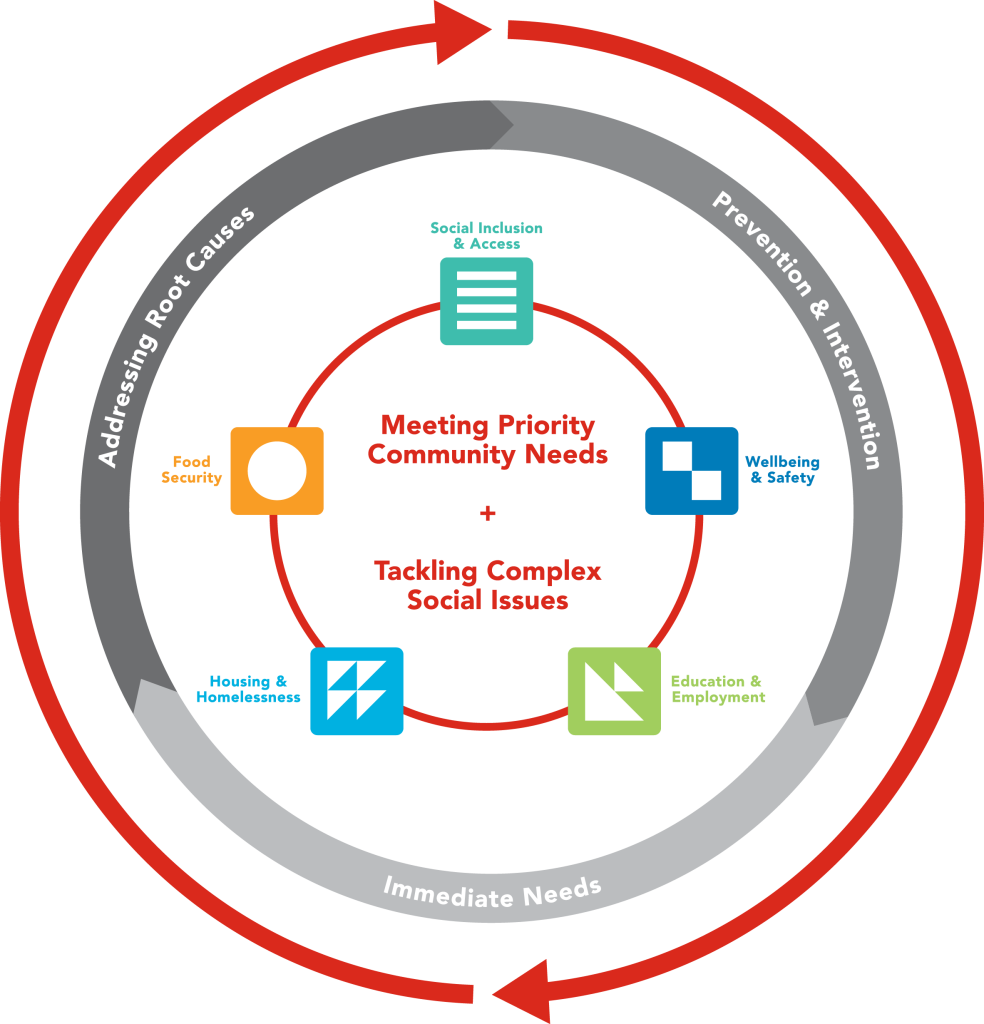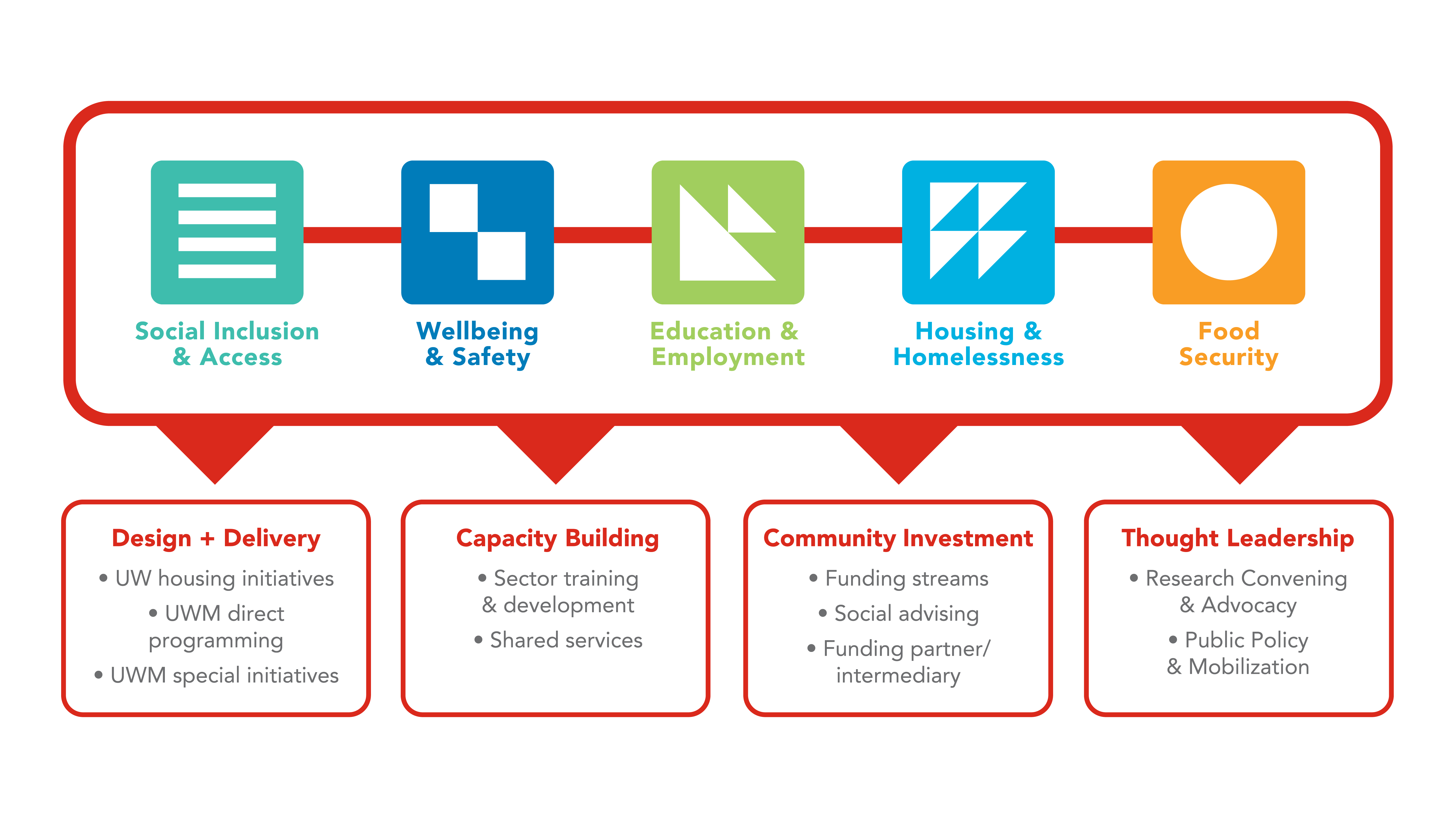United Way Maritimes 2024-25
Community Impact Framework

Creating a Community Impact Framework
One of the first major projects after amalgamation was to create a new community impact framework that would guide all of United Way Maritimes’ work. This was a massive, but extremely important undertaking. Prior to unification, all seven United Ways had distinct approaches for community impact and how donor dollars were invested in community. Although each United Way shared many similar priorities, there was a need for a consistent, thorough framework that could be applied across the Maritimes.
The Community Impact Framework was developed using a collaborative approach and extensive engagement of both internal and external stakeholder engagement. including all staff, funded partners, key community partners, our 7 community impact council volunteers, our board and key donors. The result is a fulsome framework that can guide all aspects of our impact work.
Strategic Focus
United Way Maritimes has chosen to focus its community impact efforts on addressing the root causes of poverty and the priority needs of people most vulnerable to poverty in the communities we serve.
We do this by strengthening the social infrastructure that supports and uplifts each community so that everyone has access to the skills, resources, and opportunities they need to thrive economically, socially, and inclusively.
Impact Areas

The new Community Impact Framework focuses on meeting priority needs in community and tackling complex social issues. The framework focuses on five impact areas: housing and homelessness, food security, social inclusion and access, wellbeing and safety and education and employment. The impact areas were informed through our consultation, and reflect the current and emerging needs in each of the communities we serve.
Impact Approaches

There are three different impact approaches in the framework, which will help United Way Maritimes determine where to focus our efforts.
Immediate needs focuses on meeting the needs of people in crisis. Programs funded in this area might provide food, gas or shelter to families or individuals with a need that should be met in a timely manner.
Prevention and intervention is focused on supporting people so they don’t fall into crisis, or giving people a hand so they can make the next step in their journey. This could include education and training programs, 2SLGBTIA+ allyship and education programs, and peer support programs for mental health.
Addressing root causes is an important impact approach that has not always been a part of United Way’s work. Addressing root causes typically takes a long time and is rarely done is isolation. However, by working with partners, governments and the social sector, addressing root causes will eventually result in improved quality of life for many people we support. Examples of efforts around addressing root causes include advocacy for public policy changes to address intimate partner violence, mental health and harm reduction, or policy interventions that improve incomes for low-income households.
Impact Pathways

There are four ways that United Way Maritimes will address the impact areas, and these include design and delivery, capacity building, community investment and thought leadership.
Traditionally, many people think of United Way as a funder, and we will continue to do that important work through the community investment pathway. This will include regular funding streams for operational and program funding, as well as acting as an intermediary or funding partner for government or donors with targeted interests. We’ll also continue to act as a social advisor, helping donors align their philanthropy with community needs.
In addition, United Way Maritimes is increasingly designing and delivering our own programming. This includes the work of our Affordable Housing Division, direct programming like Building Safer Communities and 211 PEI. We will continue to explore other possibilities when there is an obvious role for our expertise and experience.
United Way has often been known as an advocate for the social impact sector, and we continue to build on that through our capacity building pathway. Sector development initiatives like ED Academy, the Public Policy Training Institute and board governance training are key to increasing the strength and resilience of the sector.
Related to that work is our thought leadership pathway. Our evaluation and research work ensures that we’re able to create solutions that can work for the social sector, government, donors and other partners. It also ensures that we are able to report back on their investments. United Way Maritimes also engages in advocacy and public policy efforts for our own work, but also on behalf of the social impact sector.
Learn More
Want to learn more about our impact work? Check out our Impact Area Snapshots, which have statistics and issue information as well as examples of how we might work in each of the impact approaches and pathways.
Impact Area Snapshots
-
Housing & Homelessness
- Housing & Homelessness
-
Food Security
- Food Security
-
Social Inclusion & Access
- Social Inclusion & Access
-
Wellbeing & Safety
- Wellbeing & Safety
-
Education & Employment
- Education & Employment
